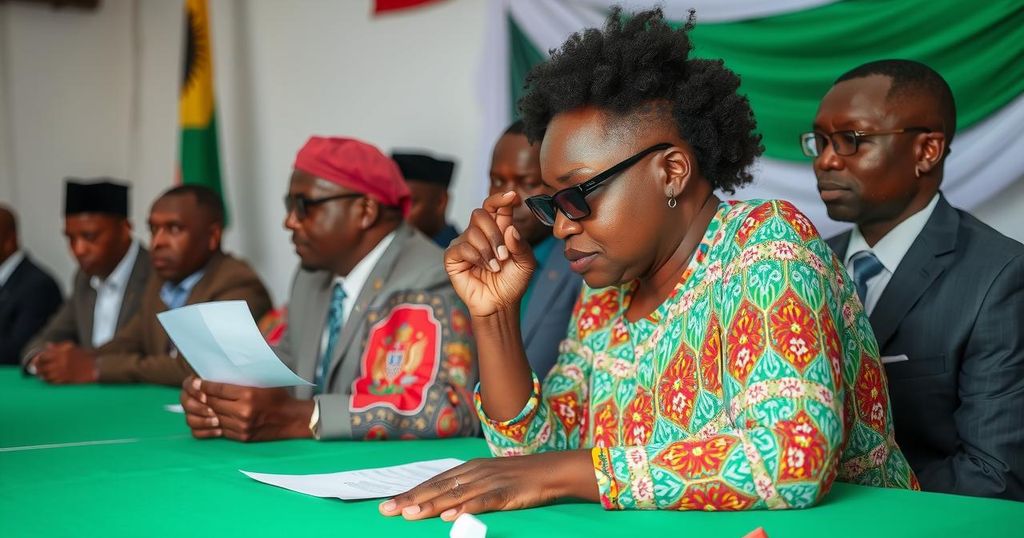World news
2024 ELECTIONS, AFRICA, AFRICA CENTER FOR STRATEGIC STUDIES, AHMED ABDALLAH SAMBI, AP, APNEWS, ASSOUMANI, AZ, AZALI ASSOUMANI, COM, COMOROS, CORRUPTION, ELECTIONS, EUROPE, FOR THE RENEWAL OF THE COMOROS, FRANCE, GOVERNANCE, GRANDE COMORE, INDIAN OCEAN, MADAGASCAR, MAYOTTE, MITSOUDJE, MITSOUDJÉ, MORONI, PRESIDENTIAL ELECTION, U. S, VOTER TURNOUT
Fatima Khan
0 Comments
Comoros Parliamentary Election Reflects Political Tensions Amid Boycott
On Sunday, Comoros held a parliamentary election boycotted by opposition parties citing concerns over the ruling party’s authoritarianism. Approximately 330,000 voters were registered, although low turnout was expected. Allegations of electoral malpractice followed the previous contested elections. President Assoumani participated despite critiques and adverse weather conditions.
On Sunday, Comoros conducted a parliamentary election amid a boycott from certain opposition factions. These leaders accused President Azali Assoumani and his party of authoritarian practices and expressed concerns regarding the electoral process’s integrity. The election, taking place to fill 33 legislative seats, follows a controversial 2020 parliamentary vote that the opposition labeled a “masquerade” and claimed was neither free nor fair. Approximately 330,000 voters are registered on the island nation; however, opposition parties predict low turnout driven by disenchantment with the electoral system. The ruling Convention for the Renewal of the Comoros previously secured 20 of the 24 contested seats during the last elections. Despite criticism, Assoumani participated in the vote in his hometown, while the Juwa Party of former President Ahmed Abdallah Sambi continued their boycott, echoing sentiments from the 2020 election. The archipelago, grappling with a history of coups since its independence in 1975, is presently facing political instability under Assoumani’s presidency, marked by claims of increasing repression and non-competitive elections. Notably, voting proceeded despite the threat posed by Tropical Cyclone Dikeledi.
The Comoros archipelago has experienced political upheaval since gaining independence from France in 1975. President Azali Assoumani, a former military officer who originally seized power in 1999, has returned to power multiple times. His administration has been characterized by constitutional changes permitting extended rule and subsequent allegations of electoral malpractice. The political landscape is complex, with repeated claims from opposition leaders regarding electoral integrity and fairness. The recent boycott reflects a growing disillusionment among citizens and political factions concerning the democratic process, highlighting the obstacles facing governance in the nation.
The recent parliamentary election in Comoros, marred by the boycott of opposition parties, underscores the ongoing challenges to political legitimacy in the country. Accusations of authoritarianism against President Assoumani and the ruling party raise critical questions about the future of democracy in the archipelago. The anticipated low voter turnout speaks to the broader disillusionment with the electoral process, further complicating the political dynamic within Comoros.
Original Source: www.seattletimes.com




Post Comment